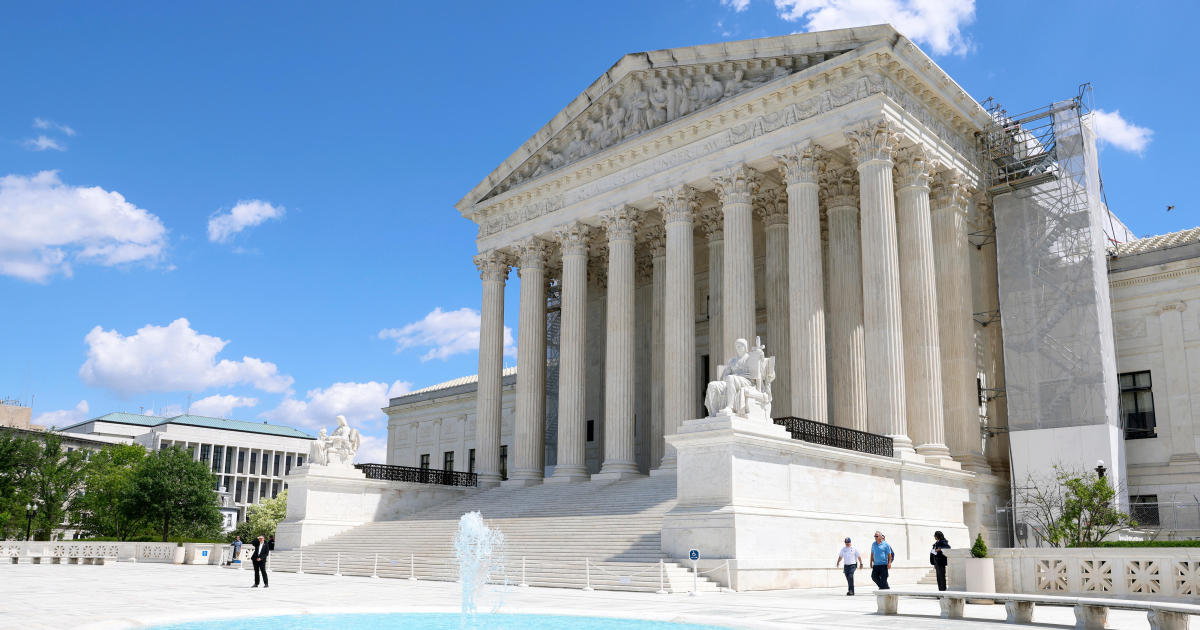Transcript: Scott Gottlieb discusses coronavirus on "Face the Nation," October 18, 2020
The following is a transcript of an interview with former FDA Commissioner Scott Gottlieb that aired October 18, 2020, on "Face the Nation."
MARGARET BRENNAN: Welcome back to FACE THE NATION. We want to go now to former FDA commissioner Dr. Scott Gottlieb, who is in Westport, Connecticut. Good morning to you.
DR. SCOTT GOTTLIEB: Good morning.
MARGARET BRENNAN: We have now eight million infections in the United States, record hospitalizations. In terms of the red zone areas the White House is concerned about, 26 states fall into that category. Where are we headed as a country?
DR. GOTTLIEB: Probably the most difficult phase of this epidemic. I think the next three months are going to be very challenging. There's really no backstop against the spread that we're seeing. And we're probably two or three weeks behind Europe. And Europe's in a very difficult position right now too. I think as we enter the winter, we're going to see continued spread. There's 42 states where hospitalizations are rising. There's 45 states where the rate of transfer, the Rt is above one, meaning they have expanding epidemics. And there's really no backstop. There's not going to be an intervention that really thwarts this short of the ability to get a vaccine, which is probably an event that happens late in next year.
(INTERRUPTION DUE TO AUDIO INTERFERENCE)
MARGARET BRENNAN: We want to go back now to Dr. Scott Gottlieb. We have fixed that technical issue, we hope. You were just saying, Dr. Gottlieb, that we were headed into a very difficult period. You still predict the vaccine as an event well into 2021. When we look at what's happening right now, there's such an outbreak in the Midwest. In Wisconsin, they had their highest daily case total since the pandemic began on Friday. And residents are being told to avoid crowds. But the president held a rally there just yesterday. He seems to not be adopting any further health restrictions even after having recovered from the virus himself. How dangerous is this?
DR. GOTTLIEB: I think it's problematic, and I think it's adding to the challenges. Look, the spread we have right now is with the mitigation that we have in place. And so we are taking some steps. If we weren't taking those steps, if people weren't wearing masks generally and some states weren't adhering to some mitigation tactics and we weren't testing and tracing, then we'd have much worse spread. And if you look at the White House strategy, they've come out against universal masking. They've come out against testing asymptomatic and mildly symptomatic people. They say testing should be reserved just to the vulnerable. They want businesses and schools reopened, as we all do, and they're against targeted mitigation like closing restaurants. There was criticism of New York when New York kept the restaurants closed.
So it begs the question, what is the strategy? And I think the strategy is just to endure the spread until we get to that vaccine. And the reason that's problematic is because even if you get companies filing applications at the end of November, which is what they've said. And I'm on the board of Pfizer, one of the companies developing one of those vaccines. It'll take the FDA two to four weeks to turn that application around. Then it will take us another two to four weeks to get the initial tranche of people, the most vulnerable who are indicated for the vaccine, vaccinated. Then they need to get a second dose and that happens in the next three to four weeks. And then it takes two weeks for the immunity really to kick in. So you're looking at a situation where the first tranche of people to get vaccinated really won't be protected from the vaccine probably till February and maybe March. And so that's a long way off. We're going to have to endure this wave of spread right now. And it's probably likely to be the biggest wave that we endure without the benefit of a vaccinated population. So we're going to have to rely on those mitigation steps.
MARGARET BRENNAN: You're talking to us from Connecticut. That's a state in the yellow zone. I know you plan to vote in person, but if you live in a red zone state, if you live in the Midwest right now, how safe is it to go out in the midst of an epidemic and vote?
DR. GOTTLIEB: Look, I think it's— I think it's possible to protect yourself, but you're going to need to take precautions. You know, the biggest risks are the settings where we let our guard down. And when you talk to the governors about where the spread is occurring, it's occurring in congregate settings where people feel more comfortable, a local Elks Club, a large family gathering. I think when you go out to vote, the voting places are taking precautions. They're sequencing people carefully. They're cleaning the voting stations in between voters. Their lines are going to be long, but they're going to take precautions inside those settings. And I think when people go out to vote, if they wear a high quality mask, they can adequately protect themselves. The biggest risk are the settings where we're not on our— on guard, where we let our guard down, where we are not taking those kinds of precautions. So I think you can vote safely, even in places where there's high prevalence. But you're going to need to be careful.
MARGARET BRENNAN: And when you say high quality mask, you mean not a cloth one, is that right?
DR. GOTTLIEB: Right.
MARGARET BRENNAN: OK.
DR. GOTTLIEB: Quality of mask matters. That's what the studies show. And so if you wear a procedure mask, that's going to protect you better, and if you're going to get N-95 masks that's even better.
MARGARET BRENNAN: When you said large family gatherings are a major source of spread are you advising people not to celebrate Thanksgiving?
DR. GOTTLIEB: I think people need to weigh their individual risk. If you have people in your family who are vulnerable, I think it's advisable to try to continue to protect them. We have two or three very hard months ahead of us. I think this is probably going to be the hardest phase of this pandemic. The good news is that we have a lot— a lot of medical treatments and better medical care so we're going to do a better job of preserving life. The bad news is I think we're going to end up infecting a lot more people. And so, you know, we need to get through these next two to three months. And we've made it this far. I know people are exhausted, but we're in this about eight, nine months now, and we have a short period of time to go. We're probably in the seventh inning of the acute phase of this pandemic right now.
MARGARET BRENNAN: And quickly, we keep hearing about these therapeutic breakthrough drugs. How widely available will they be since we know there are likely shortages?
DR. GOTTLIEB: Well, they're going to have to be rationed. These are the therapeutic antibody drugs. They're going to have to be rationed, and I think that's going to be challenges distributing them. Right now the plan is to distribute them at emergency rooms. So you're going to have to compel people who are largely well, people who have the infection but haven't yet really developed symptoms because those are the people most likely benefit, to come into an emergency room to get infused. That's going to be a challenge.
MARGARET BRENNAN: A challenge in the midst of a pandemic. All right, Dr. Gottlieb, thank you for your analysis and advice.
DR. GOTTLIEB: Thanks a lot.
MARGARET BRENNAN: We'll be back in a moment.



